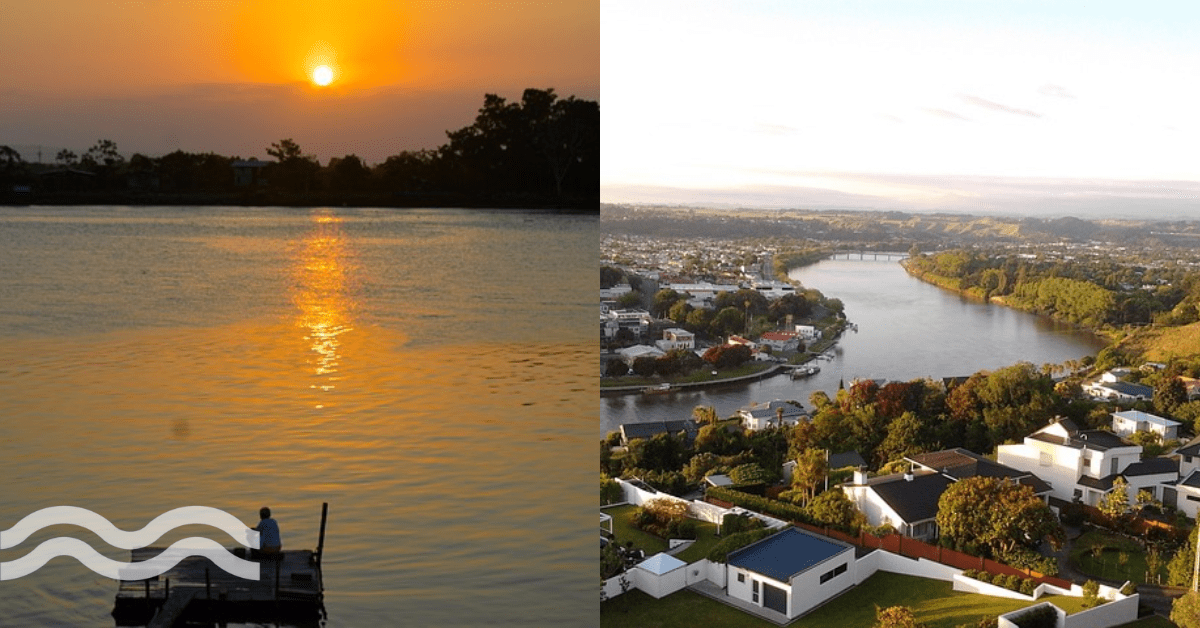
Surface water Australasia and Pacific
GRANTING THE WORLD’S RIVERS LEGAL PERSONHOOD
Monday, 21 August 2023
From the Whanganui in New Zealand to the Atrato in Colombia, rivers worldwide are gaining unprecedented legal personhood, heralding a new era of recognition, protection, and sustainability. We explore what impact this has had on the water source in their respective countries.
Recognising rivers as legal persons
Over the past decade, a remarkable movement has been gaining momentum in various parts of the world – the granting of legal personhood to rivers. This groundbreaking concept elevates rivers to the status of legal persons, affording them the same rights and protections as human beings.
The movement, which began with the Whanganui River in New Zealand in 2017, has since spread to other countries, with the Atrato River in Colombia and the Magpie River in Canada also receiving this unique status and others following suit.
The concept of granting legal personhood to natural entities is rooted in the idea that ecosystems, like rivers, have intrinsic value and deserve protection against environmental degradation and exploitation. This innovative approach challenges the conventional view of nature as mere property and instead recognizes the inherent rights of these natural entities to exist, flourish, and regenerate.
Impact on water Sources: the case of Whanganui River
In 2017, the Whanganui River in New Zealand made history by becoming the first river in the world to be granted legal personhood. The legislation bestowed the river with the legal rights, duties, and liabilities of a person, creating a powerful precedent for other countries to follow.
The legal personhood of the Whanganui River has had significant implications for the water source and its surrounding environment. The river, considered sacred by the indigenous M?ori people, has long been an integral part of their cultural identity and sustenance. By granting it legal personhood, the New Zealand government acknowledges the river’s cultural and ecological significance and commits to its protection.
With its new status, the Whanganui River now has its own guardians, appointed by both the M?ori community and the government, to advocate for its interests and ensure sustainable management. The recognition of the river as a legal person has given the M?ori people a voice in decision-making processes concerning its well-being, leading to more inclusive and community-led conservation efforts.
As part of the law, NZ$80 million will be used to redress damage caused to the river between 1880 and 1920 from works on a steamer service on the river to extract minerals from its bed, which eroded its ecological quality, destroying eel weirs and fisheries.
Reverence for nature: Ganga and Yamuna Rivers in India
India followed suit in 2017 by granting legal personhood to two of its most sacred rivers, the Ganga and Yamuna. These rivers hold immense spiritual significance for millions of Indians and have long suffered from pollution and over-extraction.
By recognising the Ganga and Yamuna as legal persons, India said it sought to safeguard the rivers’ ecological health and restore their purity. The new status allowed for more stringent legal action against polluters and those harming the rivers, creating a stronger deterrent against water pollution.
However, the decision was appealed to the supreme court and campaigners are still waiting for the verdict and the rivers sadly continue to be polluted and exploited.
The Atrato River: An environmental lifeline in Colombia
In 2019, Colombia made a significant move towards environmental conservation by granting legal personhood to the Atrato River. As one of the most biodiverse regions on the planet, Colombia is acutely aware of the importance of preserving its water sources and natural habitats.
The Atrato River, located in the Chocó region, is an environmental lifeline for countless communities and diverse species. By bestowing it with legal personhood, Colombia acknowledges its crucial role in maintaining the ecological balance and ensures a more holistic approach to its protection.
Hydro electric dam development
The Magpie River in Canada has become one of the latest rivers to receive legal personhood. The river faced increasing threats from industrial development and resource extraction activities and concerns were raised about potential ecological damage, water pollution, and habitat destruction from the development of hydro electric dams.
The 120-mile-long waterway is also sacred to the Innu First Nation, who call it Mutuhekau Shipu. They’ve depended on it as a major highway, food source, and natural pharmacy for centuries.
The journey towards granting legal personhood to the Magpie River involved years of advocacy and engagement with various stakeholders. Environmental activists, indigenous leaders, legal experts, and concerned citizens collaborated to raise awareness about the river’s value and the need for its protection. The process also included consultation with indigenous communities, ensuring their perspectives were integral to the decision-making process.
Challenges and future prospects
While granting legal personhood to rivers represents a significant step forward in environmental protection, it also brings with it complex legal and practical challenges. Balancing the rights of the river with existing human activities and development needs requires careful consideration and collaborative efforts.
However, the impact of this paradigm shift is already evident, as these rivers are receiving greater attention and resources for restoration and conservation. The recognition of rivers as legal persons reflects a growing global consciousness about the need to protect our natural resources and embrace a more sustainable approach to development.
The granting of legal personhood to rivers marks a profound shift in how societies perceive and value their natural resources. As rivers gain legal personhood, they become living entities with a voice, advocating for their well-being and conservation. This transformation instills a renewed sense of responsibility among communities and governments to protect and cherish these vital lifelines.
Originally published in AquaTech.com

